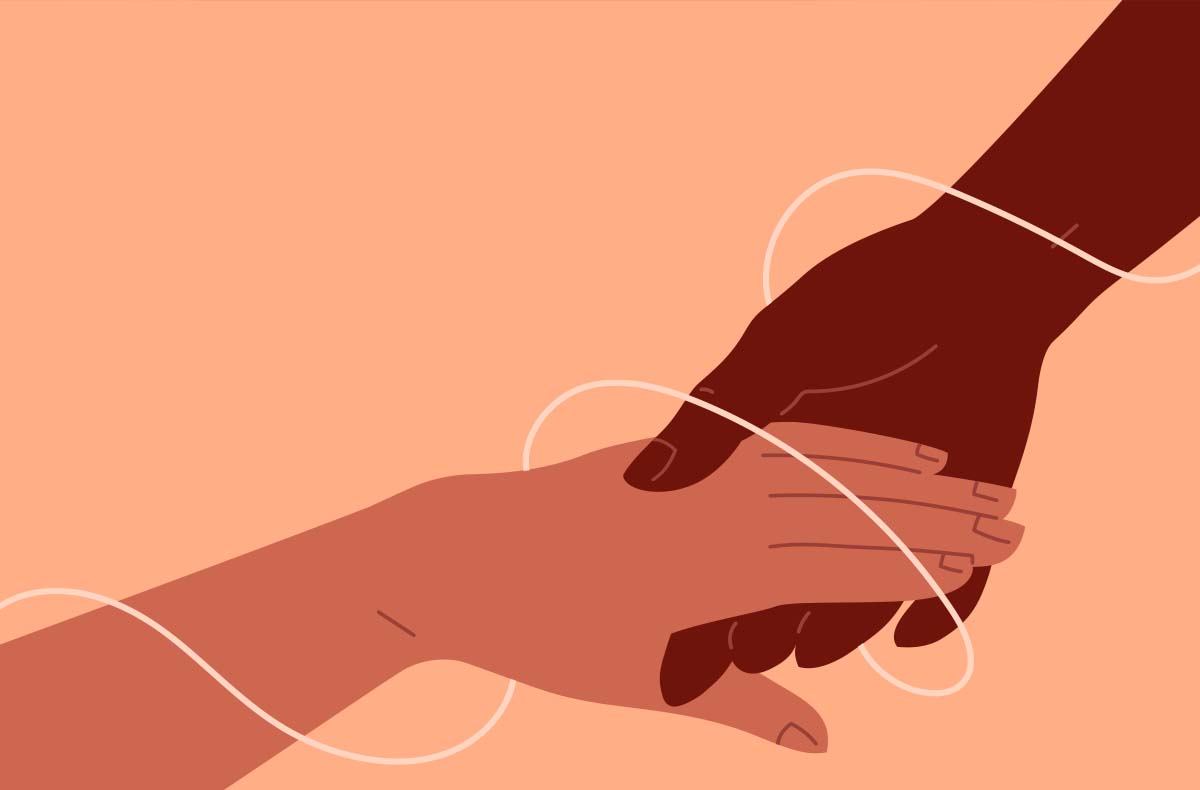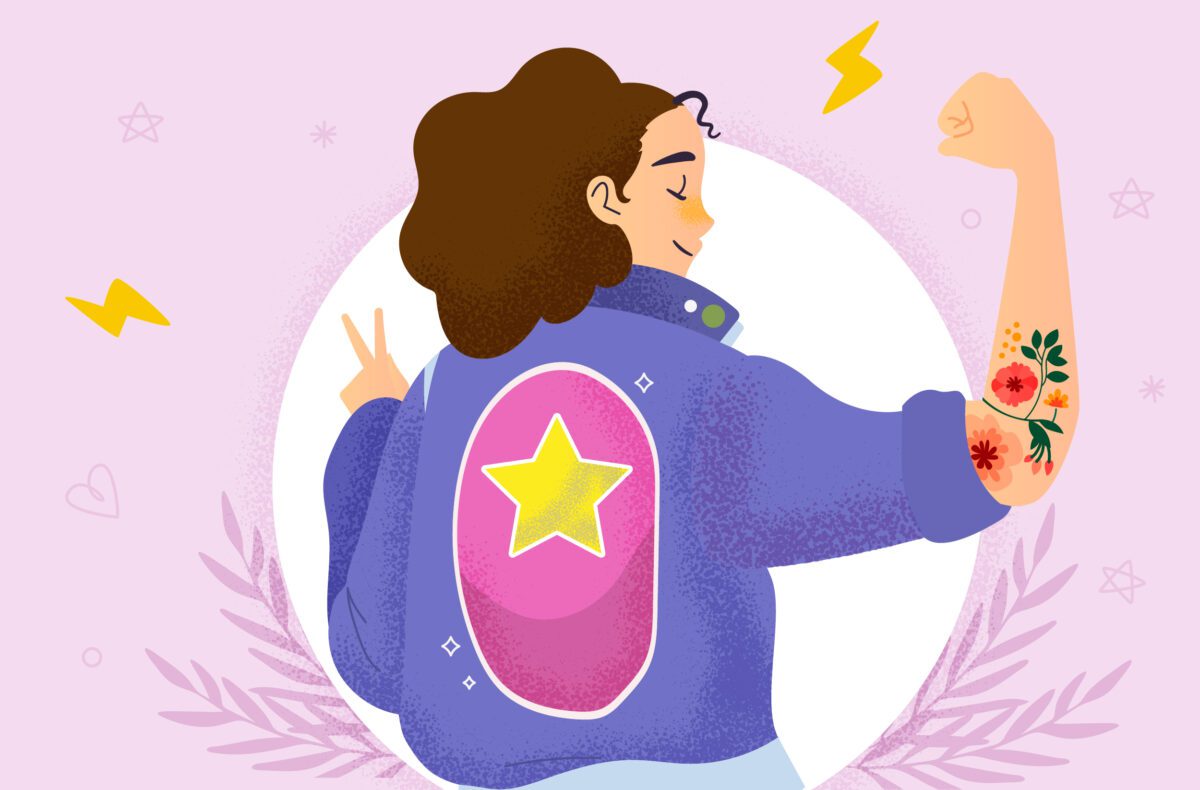
Black history should be celebrated year-round; and for allies seeking to do their part in this celebration, the first step is to amplify Black voices.
So, as a white woman, instead of writing an article about how to be an ally during Black History Month, I’ve decided to fill this piece with links to read and organizations you should check out. (This is not a comprehensive list, but rather a few things to get aspiring allies started on what hopefully will become a lifelong practice.)
Get Educated
To be a good ally, listening and amplification is key, but so is educating yourself. Read up on things you don’t know. There is a huge difference between listening and amplifying and expecting other people to do the work of explaining things to you—that is putting the burden of your edification on the person you’re supposedly seeking to “support.” This is 1) exhausting for the other person and 2) makes it about you and your education rather than about them. Before you can be an ally, you should arm yourself with the knowledge needed to do so.
To get started, I highly recommend Ijeoma Oluo’s book, So You Want to Talk about Race. Many people don’t even know where to begin when it comes to unpacking the complexities of race in everyday life: this book offers you that starting point.
To take a good look at Black History in the United States, I’d recommend reading The 1619 Project. Here, Pulitzer-prize winner Nikole Hannah-Jones uses long form journalism to “reframe the country’s history by placing the consequences of slavery and the contributions of Black Americans at the very center of the United States‘ national narrative.” While I’d always recommend reading, the book has also been adapted into a limited docu-series that’s streaming on Hulu presently—consider adding it to your watch list.
Beyond these cursory suggestions, there’s a whole universe of resources to delve into, from Ibram X. Kendi’s How to Be An Antiracist to Robin DiAngelo’s provocative Nice Racism: How Progressive White People Perpetuate Racial Harm. Do a little research, go down the Google rabbithole of excellent articles, interviews, and books covering racism and various Black experiences.
Just be ready to feel uncomfortable. If you are really doing the work, it will sometimes feel challenging: it should. Be sure your focus isn’t about how it makes you feel, but rather look deeper into why it’s uncomfortable and what that signifies about what needs to change in the world at large.
Take action
Once you’ve informed yourself about the wider issues behind racial injustice and Black history, get proactive. Inequity and injustice persists because of wider complicity. As an ally, you can fight racism by refusing to allow the systems that have empowered it to continue with your consent. This means speaking up and using privilege where you need to. If you hear people say something ignorant or tell a tasteless joke, don’t ignore it, speak up. As John Stuart Mill said, “Bad men need nothing more to compass their ends, than that good men should look on and do nothing.” One of the central tenets of antiracism is that it’s not enough to just “not be racist,” you have to actively combat racism and injustice, even when you could comfortably sit by unaffected on the sidelines. Getting active and involved in service of a more just society and not just your own comfort and benefit is at the core of real, impactful allyship.
Getting active also means putting your money where your mouth is. Most people know about organizations like the NAACP and BLM; here are a few more Black-led nonprofits to research and consider supporting across a number of causes:
Black Women for Wellness was founded in 1997 to address the disparities in healthcare for Black women and girls, providing health education, access to culturally-sensitive providers, bolstering affordable healthcare and more.
Black Male Voter Project: this organization focuses on the voting habits of Black men, encouraging them to become “super voters” and have their voices represented in America’s democracy.
The Center for Black Equity is an institution committed to supporting leaders, institutions, and programs for health, economic, and social equity for LGBT people of African descent. Since the CBE’s founding in 1999, members have examined and taken positions on the fundamental issues of the day. CBE is driven by its mission to “promote a multinational LGBTQ+ network dedicated to improving health and wellness opportunities, economic empowerment, and equal rights.”
Black Girls Code was created by electrical engineer Kimberly Bryant to help get more girls and women of color into tech fields with a program that includes robotics, as well as app, web, and game design.
National Civil Rights Museum located at the site of Dr. Martin Luther King Jr.’s assassination, this museum puts on exhibits that “illustrate chapters of the fight for civil rights in our country in order to promote better understanding of the struggles involved,”
Beyond donating to such nonprofits and supporting their great work, you can also make a commitment to shop at Black-owned companies in your community, and to follow and read Black voices on social media in the virtual world.
Allyship is about raising your awareness year-round, not just sometimes—and certainly not only during February. Your worldview is shaped by your own cultivation, so commit to educating yourself both actively and passively by creating an environment where it is easy to stay aware.
Anti-racism takes work and it takes awareness. What I’ve offered here is just the smallest sliver of how to get started, so please take this for what it is: a humble encouragement to get engaged and involved. Just as this isn’t even close to being a comprehensive list for allies, the actual tangible ways that you can be an active ally are expansive and far-reaching. So please, get going and start the real work of allyship: become a person committed to making a difference year-round, not just someone who posts about #BlackHistoryMonth on social media when it’s trending.



